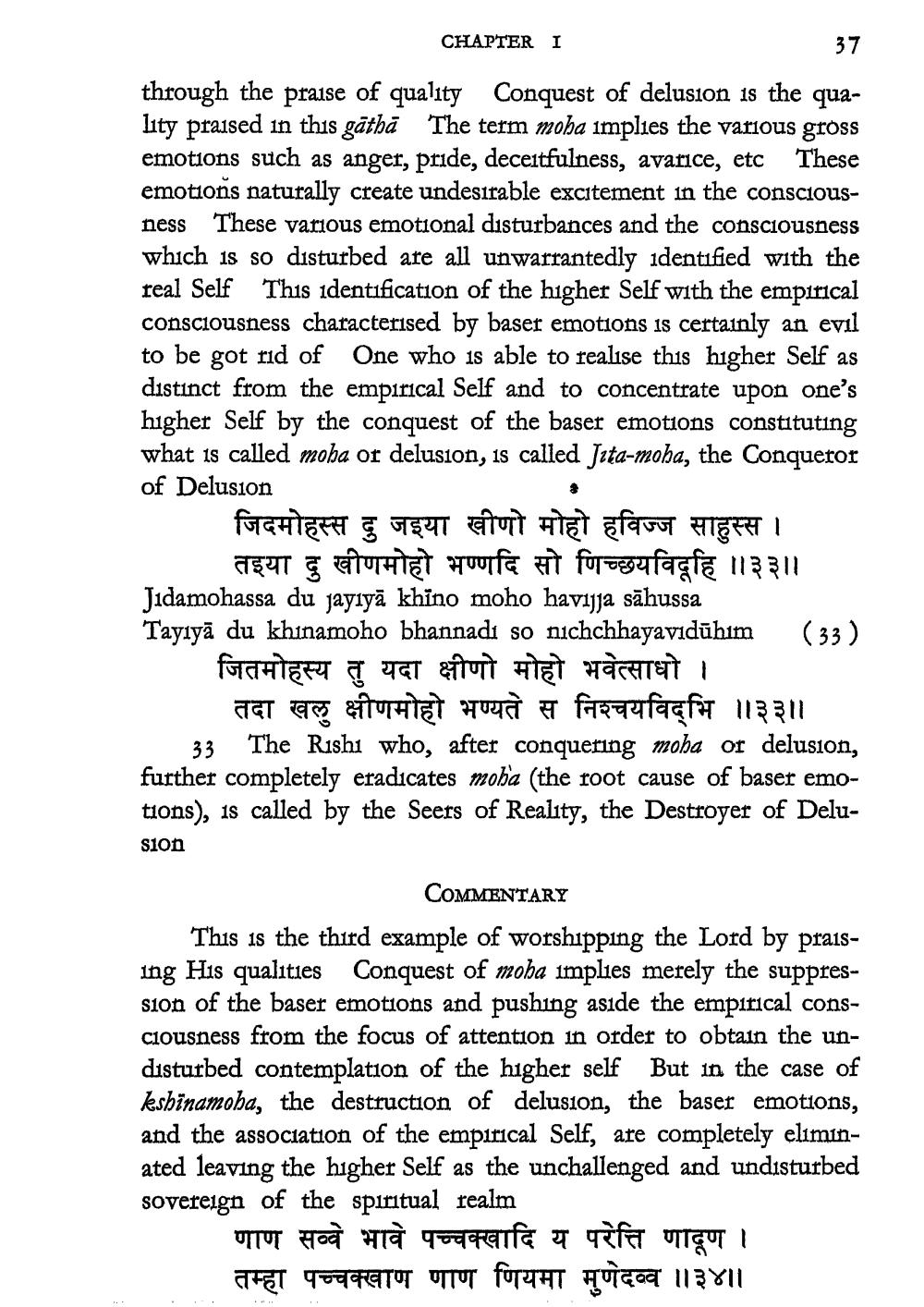________________
CHAPTER I
37
through the praise of quality Conquest of delusion is the quality praised in this gātha The term moha implies the various gross emotions such as anger, pride, deceitfulness, avarice, etc These emotions naturally create undesirable excitement in the consciousness These various emotional disturbances and the consciousness which is so disturbed are all unwarrantedly identified with the real Self This identification of the higher Self with the empirical consciousness characterised by baser emotions is certainly an evil to be got rid of One who is able to realise this higher Self as distinct from the empirical Self and to concentrate upon one's higher Self by the conquest of the baser emotions constituting what is called moha or delusion, is called Jita-moha, the Conqueror of Delusion
जिदमोहस्स दु जइया खीणो मोहो हविज्ज साहुस्स ।
तइया दु खीणमोहो भण्णदि सो णिच्छयविहि ॥३३॥ Jidamohassa du jayıyā khino moho havijja sāhussa Tayiyā du khinamoho bhannadi so nichchhayavidūhim (33)
जितमोहस्य तु यदा क्षीणो मोहो भवेत्साधो ।
तदा खलु क्षीणमोहो भण्यते स निश्चयविद्भि ॥३३॥ 33 The Rishi who, after conquering moha or delusion, further completely eradicates moha (the root cause of baser emotions), is called by the Seers of Reality, the Destroyer of Delu
sion
COMMENTARY This is the third example of worshipping the Lord by praising His qualities Conquest of moha implies merely the suppression of the baser emotions and pushing aside the empirical consciousness from the focus of attention in order to obtain the undisturbed contemplation of the higher self But in the case of kshinamoha, the destruction of delusion, the baser emotions, and the association of the empirical Self, are completely eliminated leaving the higher Self as the unchallenged and undisturbed sovereign of the spiritual realm
णाण सव्वे भावे पच्चक्खादि य परेत्ति णादूण । तम्हा पच्चक्खाण णाण णियमा मुणेदव्व ॥३४॥




